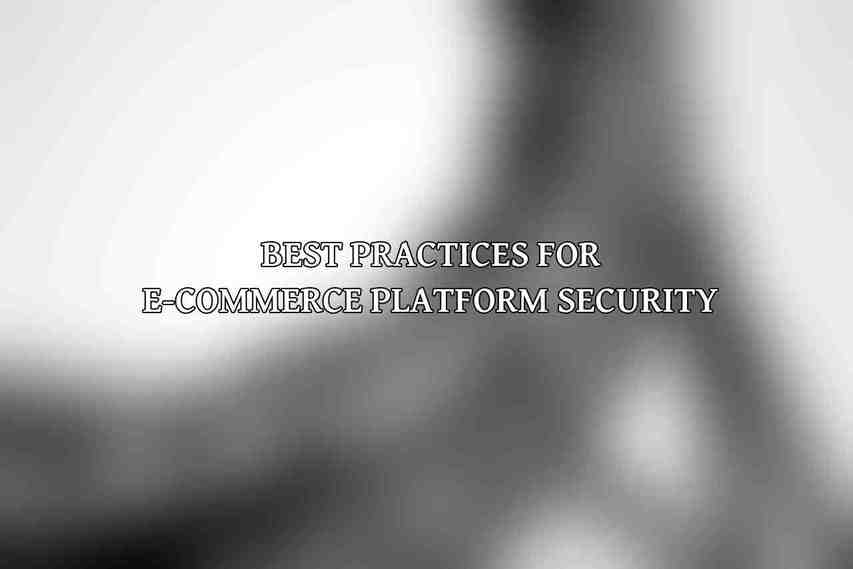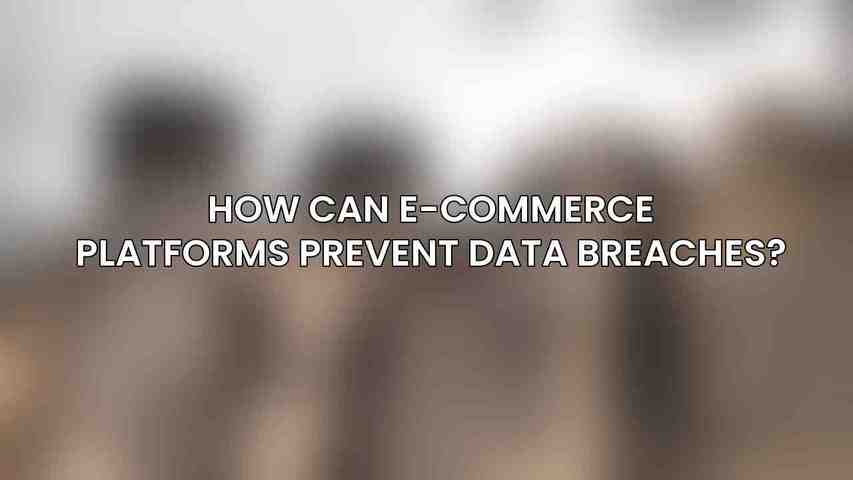E-commerce platforms have revolutionized the way we shop and conduct business. However, with this digital transformation comes the critical need to prioritize security. The significance of E-commerce Platform Security cannot be overstated as these platforms handle sensitive customer information and financial transactions. Common vulnerabilities and security threats include data breaches, credit card fraud, malware and phishing attacks, and denial-of-service attacks. These threats can have severe repercussions, including loss of customer trust, financial penalties, legal liabilities, business disruption, and revenue loss.
Security Measures for E-commerce Platforms
Ensuring robust security measures is paramount for the safe operation of e-commerce platforms. Implementing Authentication and Authorization protocols such as password encryption, multi-factor authentication, role-based access control, and biometric authentication can significantly enhance security. Data Encryption and Storage play a crucial role in protecting sensitive information with technologies like Secure Socket Layer (SSL) encryption, Transport Layer Security (TLS) encryption, data encryption at rest, and tokenization. Payment Gateway Security is essential for compliance with the Payment Card Industry Data Security Standard (PCI DSS), fraud detection, prevention measures, and tokenization of credit card information. Web Application Security can be strengthened through web application firewalls (WAFs), input validation, sanitization, Cross-site scripting (XSS) protection, and Cross-site request forgery (CSRF) protection. Furthermore, Physical Security measures such as access control, intrusion detection systems (IDS), surveillance, and disaster recovery plans are essential to safeguard against physical threats. Find more on Top E-commerce Platforms of 2024: A Comprehensive Review
Best Practices for E-commerce Platform Security

To maintain a secure e-commerce environment, it is imperative to conduct regular security audits and testing. This includes vulnerability assessments, penetration testing, and security monitoring. Proactive Threat Protection involves implementing antivirus and malware protection, intrusion prevention systems (IPS), and Denial-of-service (DoS) mitigation strategies. Employee training on security awareness covering phishing and social engineering recognition, password security best practices, and incident response protocols is crucial. Staying up-to-date with security trends and updates by monitoring security forums, participating in industry conferences, and subscribing to security newsletters is essential. Collaboration with payment processors and third-party vendors to ensure compliance with industry standards, share security best practices, and establish clear roles and responsibilities is vital.
Investing in E-commerce Platform Security is not just a necessity but also a strategic move that can provide a competitive advantage. Continuous monitoring and improvement of security measures are essential to stay ahead of evolving threats. By prioritizing security, businesses can not only protect their assets and reputation but also build trust with customers, ultimately leading to long-term success in the digital marketplace.
By following these best practices and taking a proactive approach to security, e-commerce platforms can create a safe and trusted environment for conducting online transactions in the ever-growing digital world.
Frequently Asked Questions
What are some common security threats faced by e-commerce platforms?
Common security threats include phishing attacks, data breaches, payment fraud, and DDoS attacks.
How can e-commerce platforms prevent data breaches?

E-commerce platforms can prevent data breaches by implementing encryption of sensitive data, regularly updating software, conducting security audits, and educating employees about cybersecurity best practices.
What are some best practices for secure payment processing on e-commerce platforms?
Best practices for secure payment processing include using SSL certificates, tokenization of payment information, implementing two-factor authentication, and complying with PCI DSS standards.
How can e-commerce platforms protect customer information from being stolen?
E-commerce platforms can protect customer information by securing databases with strong passwords, implementing access controls, encrypting sensitive data, and regularly monitoring for suspicious activities. Read more on How to Start an E-commerce Website: A Step-by-Step Guide
What should e-commerce platforms do in case of a security breach?
In case of a security breach, e-commerce platforms should immediately notify customers, investigate the breach to identify the extent of the damage, fix the vulnerability, and work with law enforcement and cybersecurity experts to mitigate the impact.

